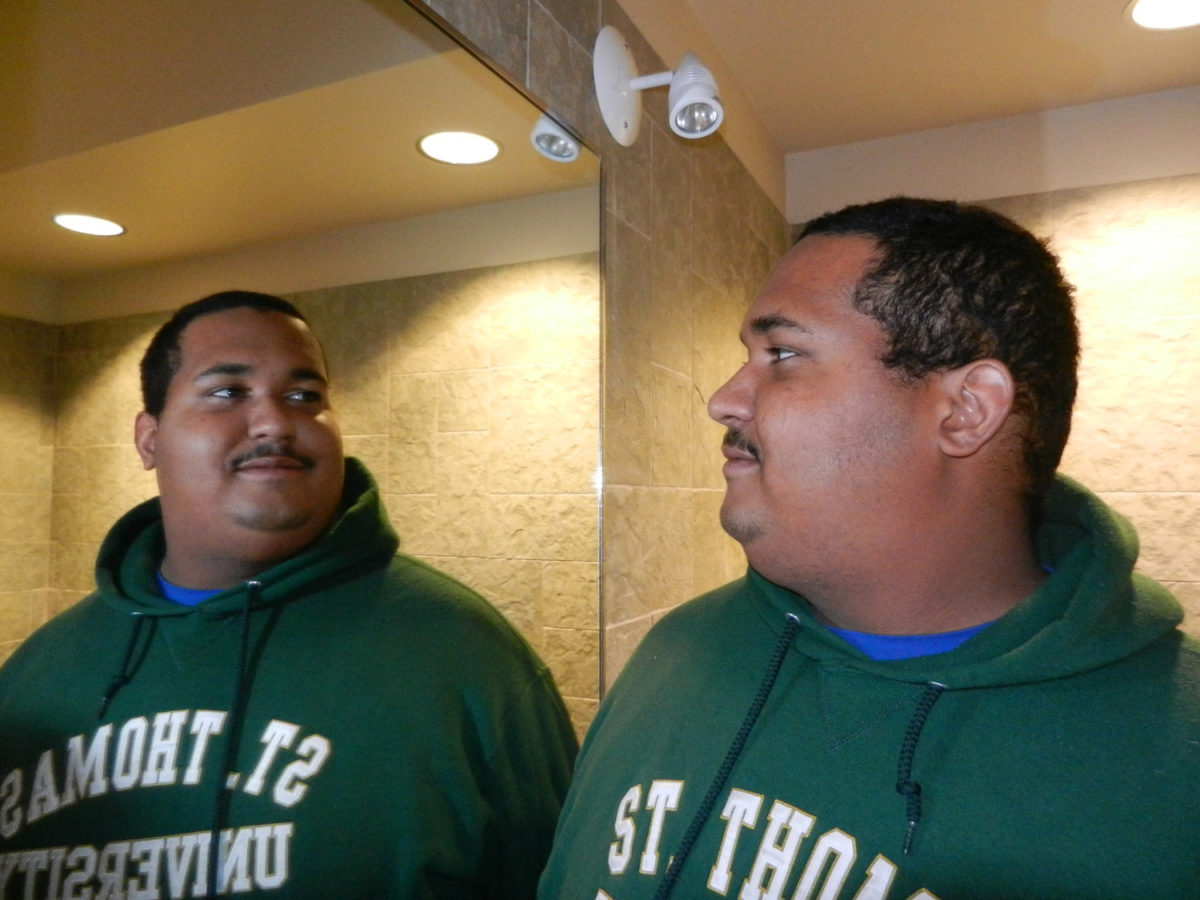
Seeing my mom jumping in ditches and writing down license plate numbers made me realize her manic-depressive and paranoid episodes were worsening. I knew she needed help. I was 19, and only a year back on my home reserve after moving back to Canada from Florida.
I asked her to seek help. She screamed back, “Go back to your people.”
What people? Am I black? Or am I native? Where do I belong?
* * *
I grew up in Elsipogtog First Nation. It had a population of two blacks – me and my sister Kristina. I don’t speak Mi’kmaq or understand the ancient Native American ways. On the reserve, my dark skin stuck out like an onyx stone in red clay.
I was a troubled child, always fighting to gain respect. Other children would call me “nigger,” ostracize me and make jokes about my skin colour. One kid told me I needed to bathe more because I was so dirty. I asked Mom for more Mr. Bubbles. She reassured me I was loved and told me I was handsome. People were just jealous they had to tan to get my mocha skin, she’d say.
I was 10 years old when I came face to face with my mother’s manic depression, a mental disorder that affects one per cent of the population in North America. It was the source of the cribbage board and the vase to the face that sent me to Florida in the first place.
* * *
At 10 years old, I moved from a Mi’kmaq reserve to a predominately black community in St. Augustine, Fla. I was raised by my grandparents, on my father’s side, who were “black and proud.” My grandfather, a Korean War vet, had worked three jobs to keep his family afloat in the segregated south. My grandmother raised six kids in those troubled times. They’d often tell me that if you’re one per cent black, you’re black.
I remember being chubby and uncoordinated. In gym class, black guys and I were always chosen first for basketball. A missed layup – brick after brick – and an inability to play defence led to questions like, “Aren’t you black?” I tried to explain that I was half Mi’kmaq and half black, but my exterior spoke the loudest.
I was told that I didn’t sound black. Whatever that means? Is it because I didn’t speak Ebonics or some other form of southern slang? Maybe the idea of a sophisticated brother was foreign to this southern black town. Soon after that, I heard things like, “That redbone thinks he’s better than us.”
That’s probably why I connected more with my white friends in school. They didn’t seem to care that I couldn’t play sports or speak the common Afro-American vernacular. In history class they’d apologize for slavery or their people’s negative reactions to the civil rights movement.
Every once in a while though I’d hear the “n” word dropped. My white friends would assure me they didn’t mean it, that times were different, that it didn’t hold the same weight, and that rap songs and Dave Chappelle jokes made it O.K.
They didn’t have a history with the word.
* * *
I was 18 when I moved back to Elsipogtog. As my sister and I drove in, I remember the crappy roads, the random scraggy dogs and the dilapidated houses. Mom’s driveway was unpaved; there was dog poop in the yard – we didn’t own a dog – and garbage littered the ditches. I thought the ghetto in St. Augustine was bad, but at least the government tried to hide poverty there. Here it was tangible, you could smell it, taste it and see it.
I heard the same kind of black jokes, but times were different. Somehow Barack Obama made being black smooth and well-spoken cool. People would tell me how much they missed me. They’d ask why I moved.
Did they forget?
At parties, people would greet me in Mi’kmaq and look perplexed when I didn’t answer. Still, they told me they were proud I worked so hard and made it to university.
During this time of political unrest I feel both closer and more distant to my Mi’kmaq brethren. I’m proud that despite our social and economic problems, so many are taking a stand against big business.
Sadly, my lack of knowledge leaves me on the outside looking in on the hydraulic fracking issue. I know people say it’s bad for the environment, but I don’t have that personal connection to the earth. Still, I recognize the deep personal connection in others.
I’m proud to be Mi’kmaq and black, and have come to realize that not all my questions about who I am and where I belong will have answers.
You might recognize me though.
I’m the guy with the big smile you might see sitting in the caf, surrounded by friends and singing Whitney Houston’s “I will always love you.”
Maybe I love to sing it because it took me so long to feel that way about myself.
